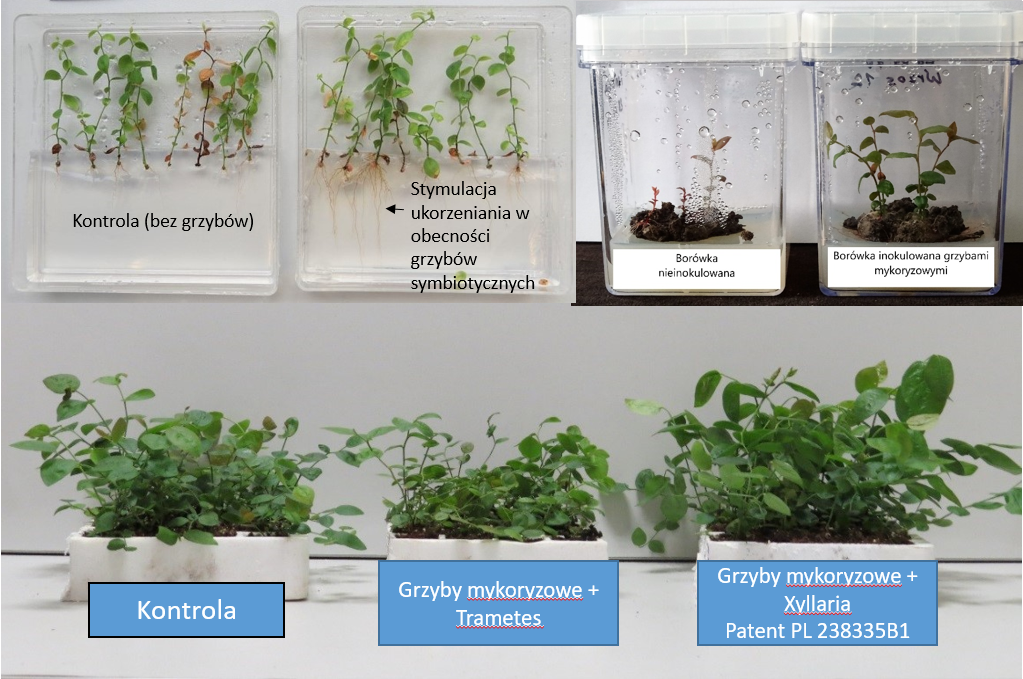Development of biotinylation technology for commercial organic berry production
The study results confirm the possibility of organic production of berry fruits, reducing the number of fertilisers and plant protection products used

 Project title
Project title
Development of biotinylation technology for commercial organic berry production
 Name of Beneficiary/Beneficiaries
Name of Beneficiary/Beneficiaries
The Jagiellonian University
 Name of programme
Name of programme
TANGO
 Competition
Competition
TANGO1
 Project value
Project value
PLN 838,766.58
 Funding value
Funding value
PLN 717,001.58
 Project delivery period
Project delivery period
June 2015 - February 2018
Meet our team



View the results of our work


What problem is addressed by the project?
The study results confirm the possibility of organic production of berry fruits, reducing the number of fertilisers and plant protection products used. Commercial cultivation to date, which does not take account of the need to protect the environment, has an adverse impact on the microbiological diversity of the soil and is detrimental to the taste and nutritional value of the fruit, and hence to the health of consumers. Growing concerns over the threats posed by climate change, including emerging periods of drought, have brought increased interest in the possibility of using microorganisms to restore soil microbial diversity and plant microbiota. Climate change in the coming decades will result in increased water scarcity and soil salinity. Our results showed the significant potential of symbiotic consortia selected for quality, crop health, yield and the ability to reduce various types of stresses (drought, soil toxicity, etc.) and to reduce the use of fertilisers and protectants. The application of symbiotic microorganisms targeted to specific crops is the future of agriculture and horticulture and hopes to improve food quality.
Who uses the project results?
The results obtained and further work carried out in this direction give hope for the future in terms of new possibilities for improving food quality and quantity, despite the depletion of natural resources to produce fertilisers and plant protection products. Appropriate selection of microorganisms should increase plant resistance to drought and reduce the amount of irrigation applied. As symbiotic microorganisms also can protect plants against pathogens, it leads to a reduction in the use of chemical plant protection products, which contributes to lower food safety. The available vaccines usually cover single types of microorganisms and are dedicated to a wide range of plants. We propose to use consortia selected for specific plant species, comprising microorganisms from different groups together and displaying diverse and complex action capabilities. Farmers, fruit producers and, above all, consumers will benefit.
What was the greatest challenge during project implementation?
The biggest challenge of the project was choosing the right substrate to grow the plants. Most of the available substrates were over fertilised despite the lack of information. Symbiotic fungi do not develop well in such media. Work will also have to be done to raise awareness among farmers and consumers. Knowledge of symbiotic microorganisms, especially mycorrhizal and endophytic fungi, is still neglected in curricula.
Our advice for other applicants
The use of natural methods requires in-depth basic knowledge and awareness-raising activities for farmers and food producers. The dissemination of knowledge is an important challenge. The above is worth noting, as this type of activity is not considered when evaluating research and teaching staff.